SIM cars: How adding data will change driving forever
A simple data connection is going revolutionise our roads
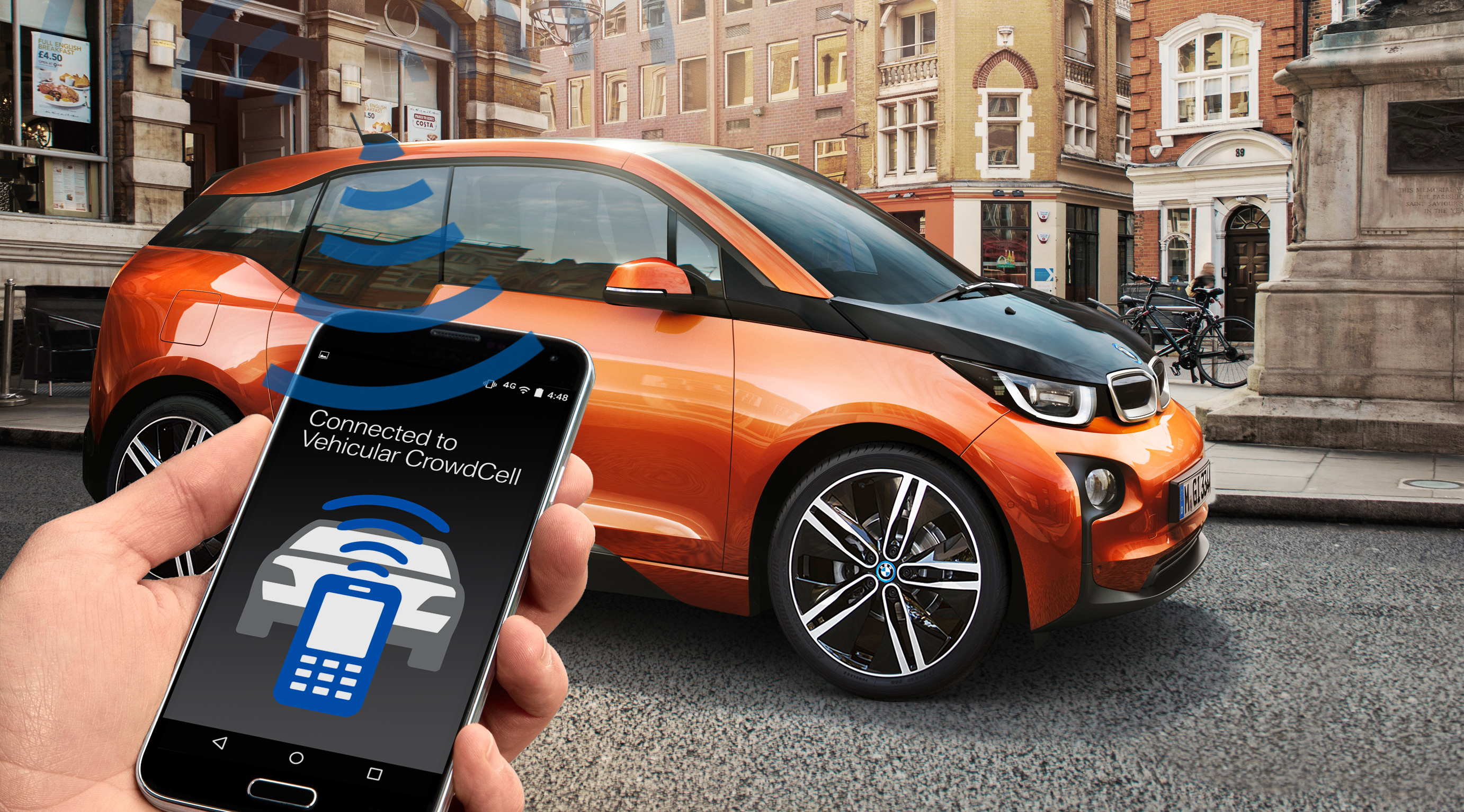
Forget smartphones. Cars are fast becoming the ultimate connected device, thanks to improved data access, traffic management in the cloud and intelligent in-car integration of myriad new features.
To find out how cars are becoming increasingly connected, and how it's going to change the way we live and drive, TechRadar has been talking to tech experts at the big car brands to find out how they plan to use the new tools a data connection will bring to your vehicle.
The first thing to understand is what's driving increased connectivity in cars. Part of it, according to Georges Massing, Mercedes' user interaction expert, is down to behaviours and expectations created by smartphones: people now expect 24/7 connectivity.
"The car is a significant part of my daily life," explains Massing, "I don't want to be disconnected for the time I spend in the car."
But that immediately throws up a problem. "Out of a car, you can use a smartphone almost anywhere without that being a problem. In the car? That's a problem," says Massing.
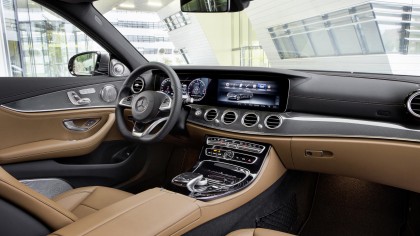
The problem, of course, is driver distraction. Using a smartphone when driving is extremely dangerous. The solution, according to Mercedes, will involve intelligent and innovative ways to integrate smartphones and connectivity into cars.
Massing points to Mercedes' latest E-Class saloon as an example. The car has both a head-up display that projects directly onto the windscreen in front of the driver, and innovative mouse-like controls on the steering wheel.
Sign up for breaking news, reviews, opinion, top tech deals, and more.
"Driving and scrolling a smartphone screen is not a good combination," says Massing. But in the new E-Class, drivers can scroll through lists on the head-up display while keeping their eyes on the road ahead.
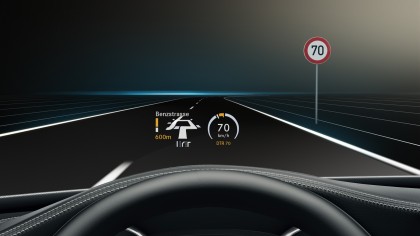
Massing says Mercedes also works closely with brands like Google and Apple to ensure that smartphones and mobile operating systems are integrated slickly into car interfaces, using common standards and practices that take into account driver distraction issues.
How connected are we?
So car manufacturers are well aware of the safety implications connected cars will bring. But what is the state of car connectivity today, and how will the technology change the way we drive in the future? We spoke to Andrew Furse, technology specialist at BMW's UK head office, to find out.
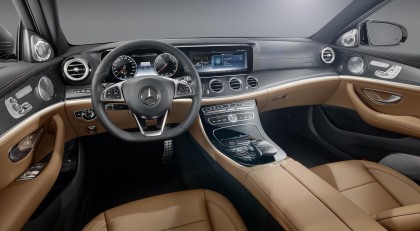
Furse says BMW's connectivity track record dates back to 1972 and its Turbo Concept, which sported telematics and radar cruise control. In 1999 BMW released the first production car with telematics capable of connecting remotely with a car manufacturer's back-end systems.
"Since 2014, a SIM card has been fitted to every BMW," Furse says, "and 90 percent of BMWs currently on sale are available with 4G connectivity".
That connectivity is built in not only to allow for existing technologies such as real-time traffic updates, and remote services like unlocking doors via a smartphone app, but also to ensure that BMW's are ready to be connected to new services and technologies.
BMW is also the first manufacturer to integrate support for IFTTT connectivity, which is the protocol for networking the so-called Internet of Things, which can be used today in BMWs that support the ConnectedDrive feature.
Owners can use this capability to do things like automatically open garage doors when they arrive home, receive an email with a map location of the car when they park, or send a text message to children when their car is nearing the school at pick-up time.
Ford is working with Amazon's Alexa to bring the same connectivity to its cars, enabling you, for example, to talk to your vehicle when on the road and have it heat up your home through smart thermostats (and have that happen automatically when you reach a certain point on the road and the outside temperature is at a certain level).
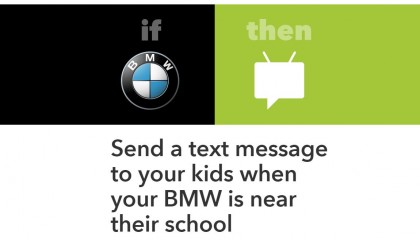
But where am I?
Another good example of the impact of connectivity is navigation routing. Already, some BMWs can send navigation routing requests to the brand's centralised back-end servers to calculate the best routes using the most up-to-date traffic and road conditions information. These 'off-board' calculations are then sent back to the car. It all happens so fast, you'd never know it wasn't being calculated locally.
In the future, the detail of that exchange will increase, and BMWs will send significantly more data back to the servers. Details like ice and fog, lane closures on motorways, even the availability of parking spaces – everything will be fed back, creating an incredibly detailed picture of road conditions and allowing for much more accurate and efficient routing.
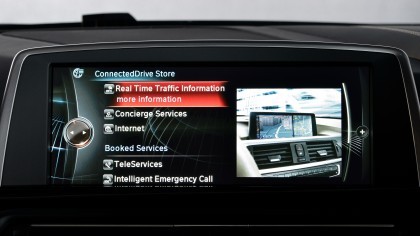
The knock-on effects will mean that even cars that aren't connected will benefit, because traffic in general will be better managed. "Fewer cars hunting for parking spaces in city centres will certainly ease traffic," says Furse.
This kind of so-called 'car-to-X connectivity', which sees cars connected to the cloud, is a big theme for Mercedes too. "Mercedes cars already support car-to-X on a small scale," says Massing. But that technology will expand rapidly in future.
Massing says that in Germany, Austria and the Netherlands, moving maintenance crews on roads are already hooked into traffic systems that transmit their location. He hopes that information will soon be available to Mercedes cars.
Another example, according to Massing, involves emergency service vehicles. Currently, it can be difficult to know from what direction an emergency vehicle is approaching, even if the driver is paying full attention, let alone listening to loud music.
If emergency vehicles shared their location and speed at all times, that information could be used to pre-warn drivers.
"Mercedes cars you can buy today are ready to use that data when it becomes available, to give drivers advance warning of the direction from which emergency vehicles are approaching," Massing says.
Massing says he also sees a future where Mercedes cars are connected to and integrated with the broader online profiles and social networks of drivers.
He thinks you'll soon be able to step into your car and find that, thanks to its awareness of your calendar – or even of what you've just been saying on social media – it will know where you want to go and already have the navigation primed.
Will we want that much connectivity?
Whether people will want their car to be so locked into their digital lives is another matter, but these are the kinds of things that connectivity will offer to tomorrow's automobiles – a key selling point when you're trying to attract consumers to your brand.
So, cars will send and receive ever more detailed information about road conditions, incidents and hazards back to the manufacturers' servers; they'll know where you want to go almost before you do; they'll know about hazards in the road ahead long before you reach them; and they'll do clever little things like communicate for you on your behalf.
Look a little further out, and add self-driving autonomous cars into the the mix, and the result could be the end of traffic jams.
Research has shown that there's a fine line between a busy but free-flowing road and a traffic jam. If at least some cars are autonomous, and guided by a highly detailed picture of traffic flows, they can be routed in real time in manner that may well prevent jams from building up.
And that alone would be enough to make connected cars worth it, right?
Technology and cars. Increasingly the twain shall meet. Which is handy, because Jeremy (Twitter) is addicted to both. Long-time tech journalist, former editor of iCar magazine and incumbent car guru for T3 magazine, Jeremy reckons in-car technology is about to go thermonuclear. No, not exploding cars. That would be silly. And dangerous. But rather an explosive period of unprecedented innovation. Enjoy the ride.